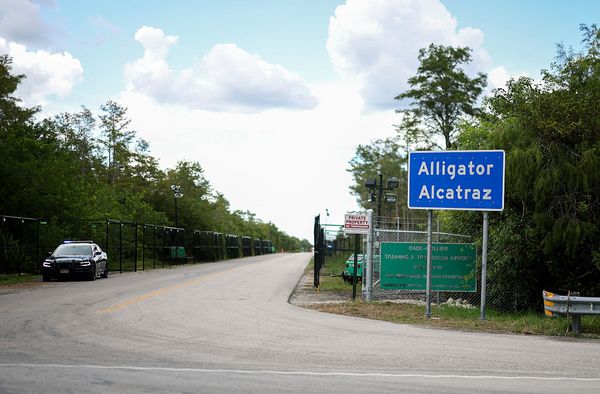
Eight former BBC journalists who had their applications to relocate from Afghanistan to the UK rejected are expecting their cases to be reconsidered after they successfully challenged the rationale behind the refusals at the high court.
In a judgment handed down on Monday, Mr Justice Lane said the decisions had been made on an incorrect basis and, but for the error, there was a “more than fanciful prospect of a different outcome”.
The journalists worked in high-profile roles for the BBC and other media agencies in Afghanistan before British troops withdrew last year. They are now in hiding, claiming they and their families are at “high risk” of being killed because of their work, which supported the UK government.
At a hearing in December, they advanced five grounds on which they challenged decisions by the defence secretary, Ben Wallace, and the home secretary, Suella Braverman, to deny them UK visas.
Lane ruled that their judicial review succeeded on one of the grounds, relating to a finding by a caseworker on the Afghan relocations and assistance policy (Arap) that they did not qualify because the BBC was independent from the government. The caseworker said this meant they could not have been said to have met the Arap eligibility criteria of working alongside a UK government department, but Lane found this was “wrong”.
He wrote in his judgment: “The caseworker erred in confining their decisions to the issue of whether working for the BBC amounted to working for HMG (his majesty’s government), at the expense of considering whether … a journalist working for the BBC or any other news organisation could be said to have worked alongside an HMG department, in partnership with or closely supporting that department.”
He also said the perception of the Taliban, who, according to the claimants, consider the BBC to be part of the UK government, was relevant, despite arguments to the contrary by David Blundell KC, representing Wallace and Braverman. Lane rejected the rest of the grounds put forward by the claimants. New decisions under Arap are expected within 21 days.
The claimants worked for the BBC World Service, which receives about £100m in funding a year from the Foreign Office. Their lawyers said the journalists were embedded with British military personnel, reported in support of the British mission, and also exposed Taliban corruption and abuse. They were said to have played “an important role in the development of a free media and accountable democracy”.
In August 2021, the then foreign secretary, Dominic Raab, said the UK government would protect “those brave Afghan journalists who have worked so courageously to shine a light on what is really going on in Afghanistan”.
Lane made no judgment on the merits of the claimants’ right to relocation. He wrote: “The defendants’ position at the hearing was not to engage with the relative strength or otherwise of the claimants’ individual histories. In the circumstances, it would be wrong for this court to attempt to undertake such an exercise, even if it had the means of doing so.”
Erin Alcock, the lawyer from Leigh Day who represented the claimants, said: “Our clients are pleased their applications will be reconsidered by the Arap team. They have been living in fear for over 18 months now, waiting to find out whether they will be relocated to the UK. During this time, the group have been subjected to threats, torture, and attacks on their lives because of their work. This case demonstrates the importance of rigorous decision making, given the serious consequences for the applicants should any errors be made.”
A Ministry of Defence spokesperson said: “We welcome the court’s findings in our favour on nearly all grounds, and will consider today’s judgement carefully, including next steps.
“We owe a debt of gratitude to Afghan citizens who worked for, or with, the UK Armed Forces in Afghanistan and to date we have relocated over 12,100 individuals under the scheme. We estimate there are approximately 300 eligible individuals to identify and our priority remains bringing those remaining individuals eligible for the scheme and their families to the UK as quickly as possible.”







